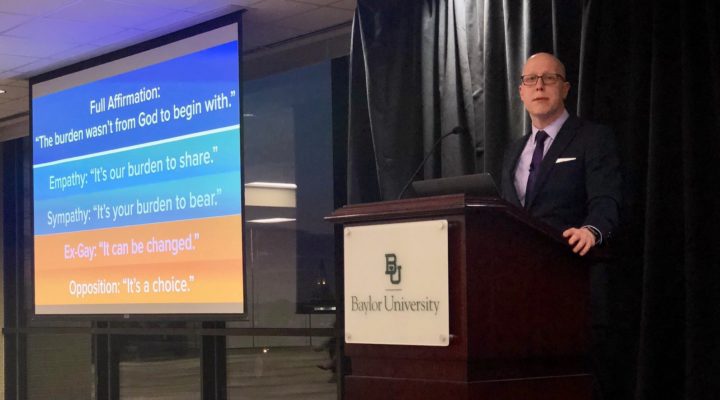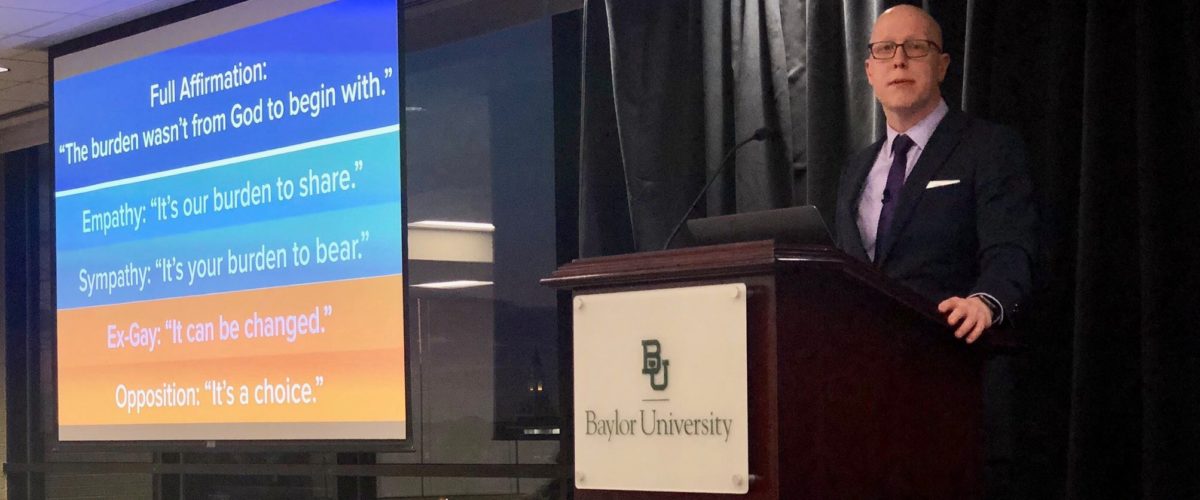Gay Christian activist Justin Lee harbored no illusions that his invitation to Baylor University would result in a sudden, official affirmation of LGBTQ students on the Waco, Texas campus.
“I know that’s not where Baylor is. I know that’s not where a lot of my Christians friends are, a lot of Christian institutions,” he said in a video recording of his Tuesday night talk posted online. He was hosted by the university’s Diana R. Garland School of Social Work.
Baylor’s gay, lesbian and transgender student community knows this all too well. Earlier this month, their latest request for a charter for Gamma Alpha Upsilon, the LGBTQ club at Baylor, was denied.
The university’s posture on the matter, buttressed by its traditional stance on marriage and sexuality, has generated increasing pressure from students, alumni, parents and other supporters of LGBT students at Baylor.
But it doesn’t require an abandonment of traditional theology to treat gays and lesbians with Christian love, said Lee, who grew up an evangelizing Southern Baptist in North Carolina.
As followers of Christ, he said, “we should be a shining example to the world of what empathy looks like. Anything less than that is unworthy of the name of Christ.”
LGBTQ struggles at Baylor
That example has been the dream of LGBT students in their efforts to gain official recognition of Gamma Alpha Upsilon, or GAY, in Greek letters. They have tried unsuccessfully for years to convince Baylor to grant a charter to the organization.
A charter would provide the student group access to university funding and enable them to invite speakers.
The university issued its most recent denial of that request on Sept. 6. The denial was issued despite increasingly organized and vocal support from BU Bears for All, a nonprofit comprised of alumni, faculty, staff and religious leaders.
The group has helped generate local, regional and national news coverage of the students’ struggle. Last spring they gathered more than 3,000 signatures in a petition drive for recognition of GAY.
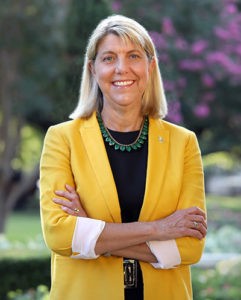
Linda Livingstone (Photo/Baylor)
Over the summer, students sent letters to the Big 12 Conference and NCAA citing “targeting and harassment on Baylor’s campus” and asking those organizations to determine if the university is in violation of Title IX, a federal law prohibiting educational institutions from discrimination based on sex.
In an Aug. 27 letter posted online, Baylor President Linda Livingstone pledged love and support for LGBTQ students but re-affirmed commitment to the university’s sexual conduct policy.
“The University affirms the biblical understanding of sexuality as a gift from God. Christian churches across the ages and around the world have affirmed purity in singleness and fidelity in marriage between a man and a woman as the biblical norm,” the letter states.
She also addressed the matter of federal discrimination law raised by students.
“Baylor is in compliance with Title IX and other federal and state regulations regarding the services and the support we provide to our LGBTQ students,” Livingstone wrote.
She also pledged ongoing dialogue with the LGBTQ community, a rejection of reparative therapy and offered a reminder that Baylor students cannot be “disciplined or expelled” due to sexual orientation.
‘Christians can’t be gay’
Lee did not address those policies directly in his talk.
Instead, he laid out his experience as an evangelical with same-sex attraction, explaining he initially used denial and a lot of prayer to wish it away.
“I’m a Christian. Christians can’t be gay,” was his attitude, he said.
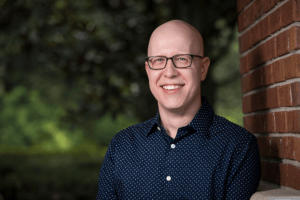
Justin Lee (Photo/Baylor)
Lee shared about vain searches for ministries and therapies that could make him straight and his eventual acceptance of homosexuality as God-given.
He shared those experiences and the perspective he gained from them in books like Torn: Rescuing the Gospel from the Gays-vs.-Christians Debate and Talking Across the Divide: How to Communicate with People You Disagree with and Maybe Even Change the World. It’s also part of the work he does through Nuance, an LGBTQ Christian network.
While it would be great if everyone would embrace a fully affirming posture toward LGBTQ people, the bottom line is theology doesn’t have to be a bar to compassion, he said.
“I do believe we can hold a conservative view of marriage and still love and support LGBTQ folks,” he said.
‘A lot worse for some people’
LGBTQ students said Lee’s presentation, and his very presence on campus, was an emotional boost to them and their efforts for full inclusion at Baylor.
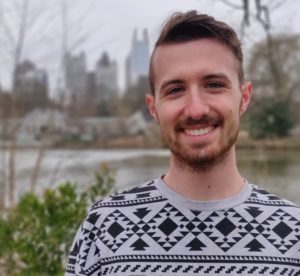
Hayden Evans
“This is a huge step in the right direction,” said Hayden Evans, a graduate student and spokesman for GAY.
Lee provided encouragement to the campaign to get a group charter and, hopefully, to open dialogue with the Baylor administration.
The night before his public address, Lee met with members of the student group to hear their concerns directly, said Anna Conner, a senior at Baylor and vice president of GAY.
“He learned that it’s definitely a lot worse for some people on campus, especially trans(gender) people and (LGBTQ) people of color,” she said.
But Lee’s officially sanctioned presence on campus provides hope that those conditions can improve some day.

Anna Conner
“We need to open a dialogue and make people think about how their actions and how things are run now in the Christian community adversely affect (LGBTQ) people who grew up in the church,” she said.
She also hopes Lee can get churches to see LGBTQ Christians as just that – Christians.
“It’s a constant struggle. We are Christians. We just want people to accept that.”
‘Ways to move forward’
Lee’s invitation was approved at the top levels of the administration as part of the President’s Conversation Series, the School of Social Work confirmed.
“After several years of wrestling with how to encourage more support for our LGBTQ students, Baylor as a whole has wanted to consider this question in an effort to live out our Christian mission of creating a caring community,” Jon Singletary, dean of the social work school, said in comments provided through e-mail.
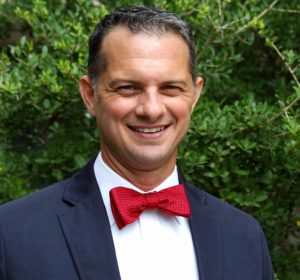
John Singletary (Photo/Baylor)
“My first hope is for our LGBTQ students to be seen and valued. I want them to hear that God loves them and Justin’s story can help communicate that,” Singletary said.
Some student supporters agreed Lee’s invitation and efforts are a good sign, but added much more work is needed.
“The outpouring of interest and support for Justin Lee’s appearance on campus continues to confirm that the larger Baylor family is a broad and diverse one and is willing to embrace and affirm all people,” according to a statement from Skye Perryman, Jackie Baugh Moore, and Tracy Teaff, founders of BU Bears for All and organizers of the petition drive for LGBTQ equality at the school.

BU Bears for All
“While the event on campus is a positive step, it is one step on a long road,” they said.
“We know from this that our efforts — and those of thousands of others — to persuade Baylor’s leadership to treat all members of the Baylor family with equal dignity and respect must continue.”
Justin Davis, a gay activist and 2009 Baylor graduate, told BNG that Lee’s talk is good step, but only if LGBTQ students begin to achieve standing and support from the university.
“Until Baylor’s administration sits down with current students and alumni and works through some changes, I don’t think much will come of it,” Davis said via e-mail.
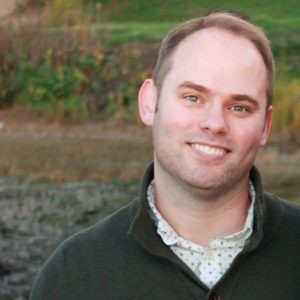
Justin Davis
Lee told BNG that he cautioned students and other supporters not to get their hopes too high.
“I told folks from the beginning I was not invited to Baylor to challenge Baylor’s theology of marriage,” he said in a separate telephone interview.
“I focused on ways that Baylor can support LGBTQ students within the boundaries of their current theological views,” he said.
Based on conversations he had at Baylor, Lee said it’s possible the message sunk in for some.
“I’m really encouraged. I think there are ways to move forward.”

